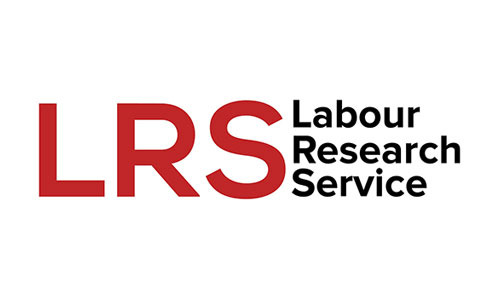The African Continental Free Trade (AfCFTA) agreement lacks labour provisions to facilitate responsible practices at a time when companies are under increasing pressure to demonstrate that they trade responsibly. Why do we want labour provisions in the AFCFTA and what could be the entry points for trade union advocacy for inclusion? Hilma Mote, ILO Senior Specialist on Workers’ Activities, puts forward seven recommendations for trade unions to consider in the following presentation.
Trade and decent work
Preamble of the WTO
“If you look at the preamble of the Marrakesh Agreement that set up the World Trade Organisation(WTO), it’s about people, improving living standards, creating employment, and supporting sustainability. This is what trade is supposed to do, supported by the WTO rules. In the 21st century, these objectives are just as valid as they were then.”
Dr Ngozi Okonjo-Iweala, WTO Director General /Key speaker at the the EU trade Policy Day, 2021
ILO declaration of Philadelphia
“Effective international and national action… to promote a high and steady volume of international trade in order to serve the central aim of national and international policy that is the goal of social justice where all human beings, irrespective of race, creed or sex, have the right to pursue both their material well-being and their spiritual development in conditions of freedom and dignity, of economic security and equal opportunity.”
The preamble to the Trans-Pacific Partnership Agreement
Establish a comprehensive regional agreement that promotes economic integration to liberalise trade and investment, bring economic growth and social benefits, create new opportunities for workers and businesses, contribute to raising living standards, benefit consumers, reduce poverty and promote sustainable growth.
Agenda 2030/SDGs
Recognises the role of both trade and decent work in achieving some of the Sustainable Development Goals.
Goal 17 emphasises the need for an inclusive trading system, or partnerships for the goals.
Goal 8 calls, inter alia, for the promotion of decent work and economic growth.
What are labour provisions?
Labour provisions are clauses in trade agreements that provide a principle, standard or rule relating to labour relations, minimum working conditions or terms of employment; mechanisms to ensure compliance with labour standards; and processes for cooperation, dialogue and monitoring of labour issues (ILO 2019).
- Free trade must be a means to an end, and not as an end in itself.
- Labour standards ought to be given centre stage in trade liberalisation processes, and in free trade agreements in particular.
- Labour standards should also play an important and growing role as governance devices for trade agreements (ILO-ACTRAV, Paper, forthcoming).
The trade-labour relationship
Labour standards are essential for social objectives and for the democratic governance of trade agreements.

Holistic assessment of impact of trade agreements on labour standards
The impact of trade agreements on labour standards goes beyond their labour provisions. Labour standards can be affected by provisions dealing with investment, public procurement, trade in goods and services, and more generally by the impact of trade liberalisation (Ebert 2017; Harrison et al. 2019).
ILO Decent Work Indicator Framework
- Employment opportunities
- Adequate earnings and productive work
- Decent working time
- Combining work, family and personal life
- Work that should be abolished
- Stability and security of work
- Equal opportunity and treatment in employment
- Safe work environment
- Social security
- Social dialogue, employers’ and workers’ representation
The AfCFTA
Social and labour issues incorporation in the AfCFTA
The AfCFTA is a process, not an event. The promotion of social and labour-related goals is not explicitly stated, but may be implied to some extent in some of the general objectives of the AfCFTA agreement. It is not yet clear how the social and labour goals will be achieved. The AfCFTA agreement provides for the possibility of adding other instruments “within the scope of this Agreement, as may be necessary” (Article 23 of the AfCFTA Agreement). In its current form, the AfCFTA does not provide an adequate anchor for the socio-economic objectives that are ideally required or implied in a concomitant continental agenda.
What could be the entry points for trade unions?
Although the AfCFTA has entered into force, negotiations are ongoing and policy documents are incomplete. There are several ways in which trade unions can influence the implementation of the AfCFTA and the inclusion of labour protections.
- Monitor developments in the AfCFTA Secretariat and gain access to decisions taken at meetings of trade ministers and representatives of States Parties.
- Develop an appropriate strategy to obtain proposals for new initiatives on social and labour issues on the AfCFTA agenda.
- Monitor the content of the schedules on trade in services that are still under negotiation.
- Do not ignore the Regional Economic Communities.
- Note that Article 5(l) of the AfCFTA Agreement also refers to “international conventions binding on the African Union” as a principle that should govern the AfCFTA.
- The African Union Assembly is an institution of the AfCFTA and is responsible for providing “oversight and strategic guidance on the AfCFTA”. Initiatives involving the African Union should be considered under Article 10(1) of the AfCFTA Agreement.
- Do not ignore development partners, International Financial Institutions and the wider UN system.
Source of recommendations: ACTRAV draft paper
Essential resource: A Guide to the AfCFTA Protocol on Trade in Goods – The Protocol on Trade in Goods does not make any reference or provision for labour, yet there is a direct link between labour and the production and trade of goods and the impact of trade liberalisation on workers. A Guide to the AfCFTA Protocol on Trade in Goods focuses on the two outstanding annexures, namely, Tariff Schedules and Rules of Origin (RoO) and suggests how trade unions can influence the ongoing negotiations.
Nelly Nyagah
Nelly Nyagah is the Head of Communications at Labour Research Service.




